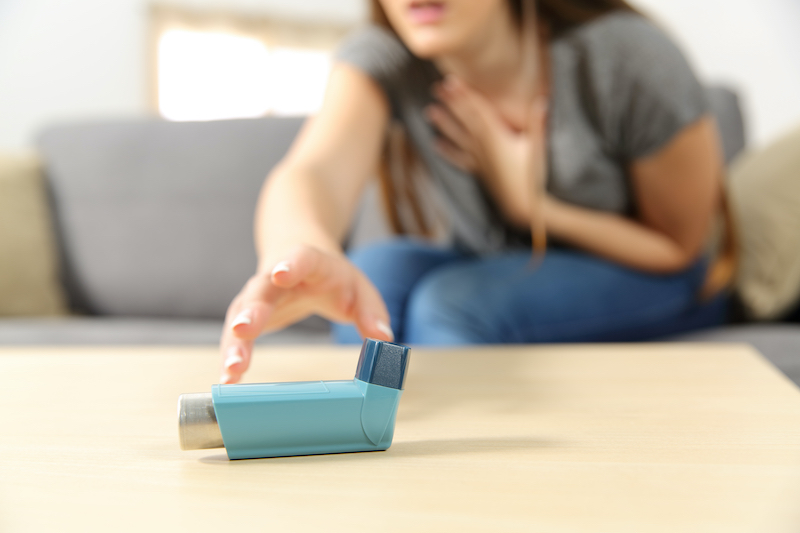


World Asthma Day is an annual event organised by the Global Initiative for Asthma (GINA) in collaboration with health care groups and asthma educators around the world. In Australia, 1 in 9 people are affected by asthma, which is around 2.7 million Australians.
House Call Doctor Clinical Director, Dr Ryan Harvey, has all the information you need about asthma, so you can identify the symptoms and effectively manage your condition.
What is asthma?
Asthma is a condition that affects the airways causing them to become inflamed when exposed to particular triggers. It is a long-term disease that can make breathing difficult through shortness of breath, coughing and chest tightness. There is no current cure for asthma, but it is a manageable condition.
What are the symptoms?
Asthma symptoms will vary from person to person however, the most common symptoms are:
- Continuing cough
- Wheezing
- Difficulty breathing
- Chest tightness
What causes asthma?
The answer to this is unknown. People with asthma have more sensitive airways than others and are more susceptible to certain triggers. Some well-known triggers that can cause asthma such as:
- Allergies
- Food and food additives
- Smoking
- Heartburn
- Exercise
- Medications
- Weather
- Smoke.
How to diagnose asthma?
The first step to diagnosing asthma is providing your GP with your medical history and may order some lung-function tests. A lung function test that is commonly used is a spirometry test which determines how well your lungs are working. Allergy testing can also be used to diagnose asthma, as it is one of the most common triggers.
How to manage asthma?
There are multiple medications and devices that can help manage asthma. There are two common methods of medication: preventers and relievers. Preventers can help reduce inflammation and make the airways less sensitive and swollen. This medication needs to be taken everyday to be effectively. Relievers are fast-acting medications that help reduce the symptoms of asthma. Usually in the form of a asthma puffer, relievers start to work within minutes and can last for up to four hours.
What does Coronavirus (COVID-19) mean for people with asthma?
Unfortunately, there still remains very little evidence of research into COVID-19 and the effect on people with asthma.
Dr Ryan Harvey says “asthma sufferers need to follow the same physical distancing and hygiene measures that the entire population is undertaking at the moment. People with Asthma should make sure they are taking their preventative medication and sticking to their Asthma Management Plan. By doing these things they will be optimizing their health.
“A person with asthma is the best judge of when to seek help for their symptoms. If they are advancing through their asthma management plan and their medication is not helping and their shortness of breath is worsening, then seeking medical help is a must. If one is not coping and has worsening wheeze, shortness of breath or cough then seeing your regular doctor early is the best approach rather than waiting for the situation to become an emergency and ending up in hospital.”




